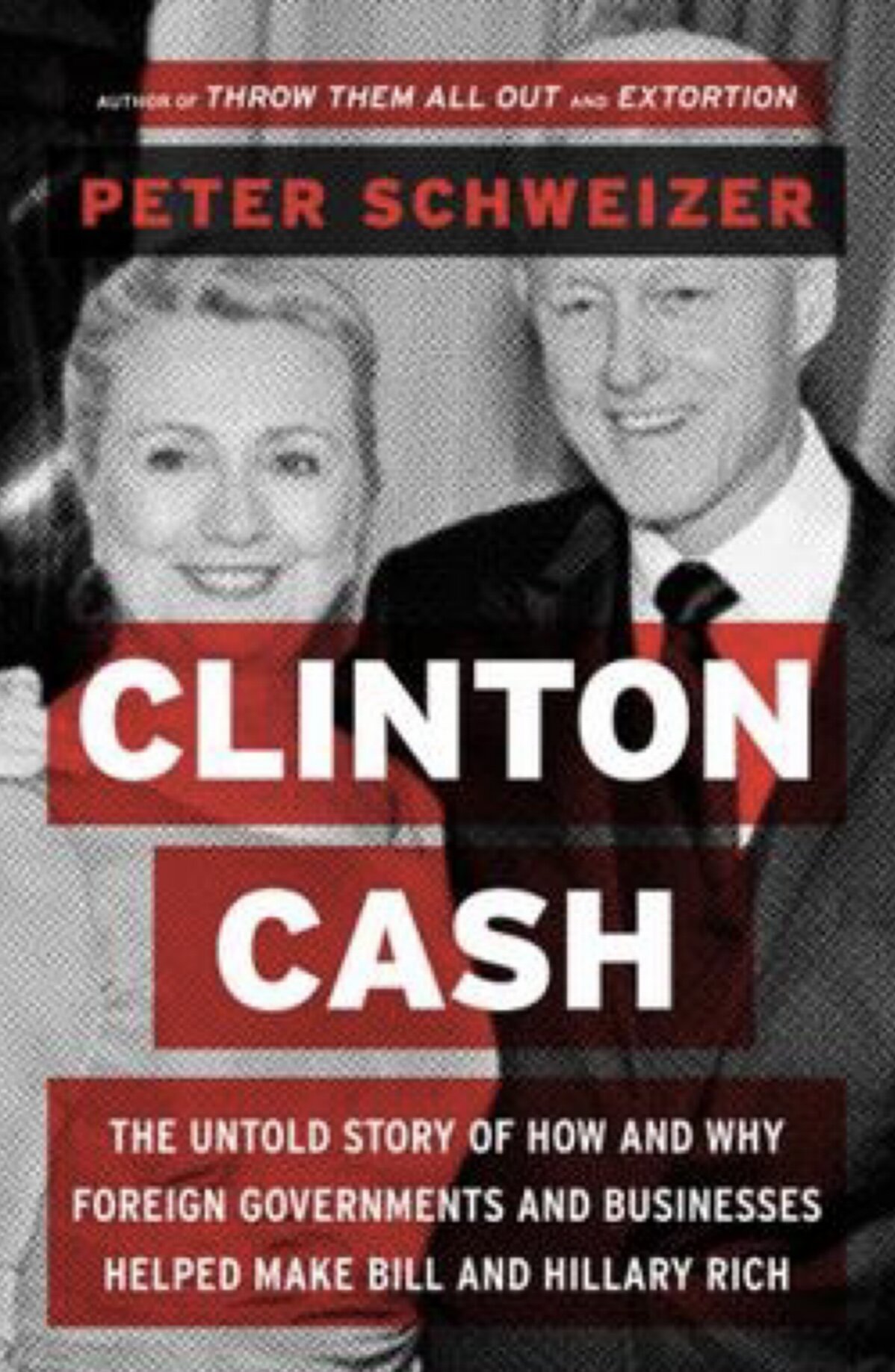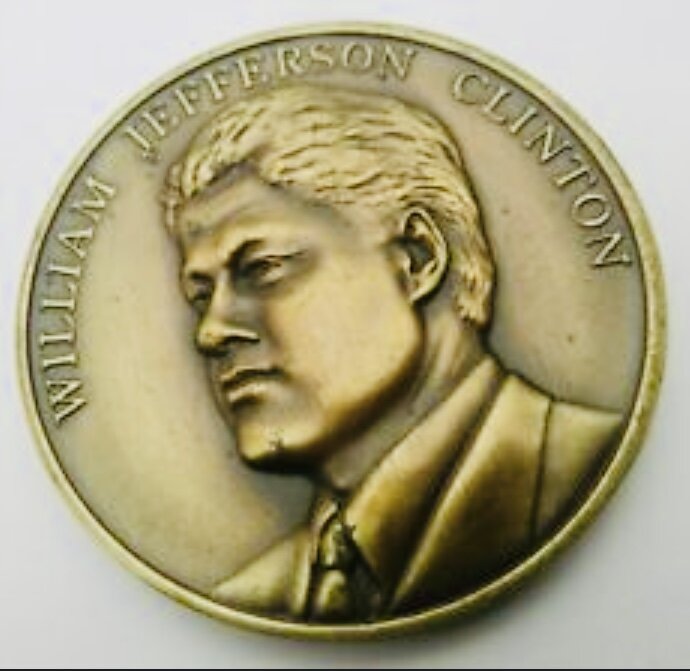The, Russian purchase of a large share of America's uranium assets raised serious national security concerns for precisely the same reasons Hillary had condemned previous deals. A foreign government would now have direct control over a very valuable commodity; the Russian government would reap hundreds of millions of dollars in revenues every year; and it would allow the Russian government to use Uranium One assets to honor supply contracts with US reactors while freeing up other uranium assets to send to more dangerous regions of the world-- where Russia was already known to be involved.
Lawmakers in Washington had raised these concerns. Still, despite a long record of publicly opposing such deals, Hillary didn't object. Why the apparent reversal? Could it be because shareholders involved in the transactions had transferred approximately $145 million to the Clinton Foundation or its initiatives? Or because her husband had profited from lucrative speaking deals arranged by companies associated with those who stood to profit from the deal?
Could it be because Bill and possibly she herself had quietly helped build the uranium assets for the company to begin with? These questions can only be answered by Hillary herself. What is clear is that based on State Department ethics documents, she never revealed these transactions to her colleagues, the Obama White House, or to Capitol Hill.
For Moscow, the approval was a major victory. Kiriyenko, the head of Rosatom, told Russian president Dmitry Medvedev that the United States would now become "a key market for Rosatom."
Because Uranium One also owned the rights to those large mines in Kazakhstan, uranium flows to Russia increased. As one Uranium One official put it in a corporate presentation, the company's operations "facilitate substantial exports of uranium to Russia.”
In 2013 Rosatom announced plans to take 100 percent control of Uranium One. It didn't even bother to ask the Obama administration for approval this time, because the transaction "involved the same parties" and the move did not technically "change the corporate structure of Uranium One."
Pravda hailed the move with an over-the-top headline: "RUSSIAN NUCLEAR ENERGY CONQUERS THE WORLD." Taking full control of Uranium One would consolidate control over uranium assets in the former Soviet Union and pave the way for the expansion of access to resources in Australia and South Africa.
The Russian takeover of Uranium One yielded shareholders a premium price. Rosatom offered Telfer and other shareholders a 32 percent premium on the share price, yielding them millions. In the fall of 2013 Rosatom passed operational control of the Bushehr nuclear reactor to Iran, and in September Vladimir Putin and Iranian president Hassan Rouhani announced that "Tehran and Moscow will cooperate in the future construction of a second nuclear power plant at Bushehr," adding that "construction work is to start soon."
Meanwhile, Uranium One made an audacious bid to mine for uranium on state land in Arizona, near the Grand Canyon. Using a shell corporation called Wate Mining, it proposed accessing the site through Navajo Nation lands.
The company apparently hoped that the Navajo Nation wouldn't notice who controlled the company, which was obscured on government forms. "The fact that the applicant failed to fully disclose ownership information does not sit well," said the Navajo Nation Department of Justice.
Plans for the mine have been suspended in light of protests. Global deals involving the transfer of funds and nuclear technology were not limited to Russia. Another troubling transaction that occurred during the same period, while Hillary was in the Senate, involved characters representing India whose political interests appear to have been advanced by their friendship with the Clintons-accompanied in turn by large donations and payments.
CHAPTER 4
Indian Nukes
HOW TO WIN A MEDAL BY CHANGING HILLARY'S MIND
In May 1998 the government of India shook the world. With a series of five underground nuclear tests, the government set off a corresponding series of political explosions. Code-named Operation Shakti (the word means "strength" in Sanskrit), the 58th Engineer Regiment of the Indian Army took special measures to ensure that test preparations went undetected by the United States.
With its bold act, India, in the words of one of the country's leading commentators, "acquired de facto nuclear weapon status." For President Bill Clinton, the tests were a surprise slap in the face. Preventing the spread of nuclear weapons and technologies had been a Clinton administration priority. Early in his presidency he had launched "a personal initiative to halt, roll back and eliminate the nuclear [programs] of both India and Pakistan." The tests were an embarrassing public dismissal of these efforts.
Clinton was livid. He erupted in a "volcanic fit" when he heard the news, according to foreign policy adviser and longtime friend Strobe Talbott. Clinton took the tests as a personal affront, as well as a threat to the nuclear nonproliferation and test ban treaties he was pushing, He responded with "an intense effort to threaten international isolation" unless India signed the test ban treaty and "took other steps to reduce nuclear dangers."
The nonproliferation treaty (NPT) entered into force in 1970 and recognized five countries as nuclear powers: the United States, the Soviet Union, Great Britain, France, and China. The NPT was designed to prevent any other country from attaining nuclear weapon status.
If a country signed the treaty, it would be given the benefit of access to peaceful nuclear technology. Clinton chose to denounce India's nuclear tests with Chinese president Jiang Zemin at his side. (This was particularly offensive to India, which considered Beijing a regional rival.)
He also lent American support to United Nations Resolution 1172, which called on India to stop testing and required them to become parties to the NPT. But most importantly, Clinton imposed a series of restrictions on the export of US nuclear technologies to India with the express purpose of "keeping the lid on Indian nuclear and ballistic-missile technology.” Clinton's India sanctions were motivated by a strong belief in the importance of the NPT.
Bill and Hillary Clinton have vigorously supported enforcing and extending the treaty. Both as first lady and then as a US senator, Hillary shared her husband's fervent support for the NPT and the test ban treaty. In a 2007 article in Foreign Affairs, then senator Clinton declared, "As President, I will support efforts to supplement the Nuclear Nonproliferation Treaty."
Throughout the 2008 presidential campaign and during her confirmation as secretary of state, she voiced continued support for staunch nonproliferation efforts. "The Non-Proliferation Treaty is the cormerstone of the nonproliferation regime, and the United States must exercise the leadership needed to shore up the regime," she said during her Senate confirmation hearings.
As secretary of state she promised that the administration would "place great importance on strengthening the NPT and the non-proliferation regime in general... we must reinvigorate our commitment to the Nuclear Non-Proliferation Treaty (NPT) in order to prevent the spread of nuclear weapons and the potential for nuclear terrorism.
India had never signed the nonproliferation treaty and was not about to. But as the Clinton administration passed and the Bush administration took office in January 2001, New Delhi began thinking about getting the sanctions lifted.
Hoping to make, that happen they hired expensive lobbyists and encouraged Indians in the United States to build rapport with both political parties. There were also a series of large payments made at pivotal moments to the Clinton machine.
Some of these payments came in the form of lucrative speeches, paid for by Indian entities with a direct interest in having the sanctions lifted. Others came in the form of donations to both Hillary's Senate campaigns and her presidential bid, by those who could legally do so. But mostly, they came as millions in donations to the Clinton Foundation.
Tracing the real source of some of those millions would prove impossible, but their effect on the Clintons' policy toward India seems apparent. In the end, both Bill, who initially imposed the sanctions against the Indian government, and Hillary, who supported that policy, played a vital role in getting them lifted. Shortly after the legislation passed, the Indian government granted one of its most prestigious civilian awards to a close Clinton family friend precisely because, as they saw it he got Hillary to support the legislation.








